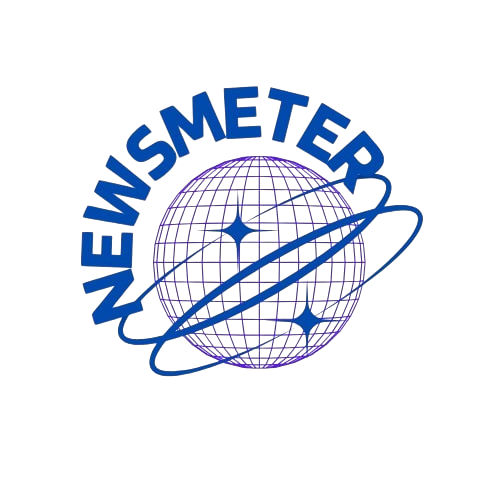In the rapidly evolving digital landscape, data breaches and unauthorized leaks have become pressing concerns for individuals and organizations alike. One such incident that has garnered significant attention is the “thejavasea.me leaks aio-tlp287.” This comprehensive analysis delves into the intricacies of this leak, exploring its origins, contents, potential risks, and the broader implications for cybersecurity and ethical considerations.
Understanding thejavasea.me
thejavasea.me leaks aio-tlp287 is a platform that has emerged as a repository for hosting and distributing a variety of leaked datasets and tools. Known for offering all-in-one (AIO) packages, the site has become a destination for users seeking consolidated resources. However, its activities raise serious concerns about privacy, legality, and cybersecurity.
Deciphering AIO-TLP287
The term AIO-TLP287 refers to a specific dataset or package hosted on thejavasea.me. This package typically encompasses:
- Password Lists: Compilations from various breaches intended for brute-force attacks.
- Software Cracks: Tools designed to bypass software licensing restrictions.
- Sensitive Documents: Unauthorized access to confidential files.
- Automation Scripts: Scripts for tasks such as data scraping or hacking.
While AIO packages like AIO-TLP287 might appear useful to some, their distribution often comes with ethical and legal dilemmas.
Contents of the AIO-TLP287 Package
The “thejavasea.me leaks AIO-TLP287” package reportedly contains an extensive range of resources, making it both appealing and controversial. Common components include:
- Login Credentials: Usernames, passwords, and two-factor authentication details from compromised accounts.
- Corporate Information: Internal communications, proprietary files, and sensitive organizational data.
- Scripts and Tools: Automation tools that can be used for both ethical and malicious purposes.
- Personal Data: Names, email addresses, phone numbers, and financial details.
Each element within the package carries significant implications depending on its usage—ranging from ethical hacking to outright illegal activities.
Significance of thejavasea.me Leaks AIO-TLP287
The prominence of “thejavasea.me leaks AIO-TLP287” stems from its versatility and the debates it ignites within the cybersecurity community. Key factors include:
- High Demand: Its comprehensive nature renders it valuable for both hobbyists and professionals.
- Dual Use: Ethical hackers might utilize it for research, while malicious actors exploit it for cybercrimes.
- Legal and Ethical Challenges: The dataset raises questions about responsible use and accountability.
Risks Associated with thejavasea.me Leaks AIO-TLP287
Engaging with the AIO-TLP287 package entails several risks:
1. Legal Consequences
Accessing leaked data, even for research purposes, could violate local and international laws, leading to severe penalties, including fines or imprisonment.
2. Malware and Viruses
Files within such packages may harbor hidden malware, ransomware, or viruses, jeopardizing device and data security.
3. Privacy Violations
Utilizing leaked data compromises the privacy of affected individuals, raising significant ethical concerns.
4. System Vulnerabilities
Some AIO packages function as Trojan horses, exploiting vulnerabilities within the user’s system.
Ethical Hacking vs. Malicious Intent
The emergence of “thejavasea.me leaks AIO-TLP287” underscores the fine line between ethical hacking and cybercrime. Ethical hackers, or white-hat hackers, employ their skills to enhance security by identifying vulnerabilities. Conversely, the same tools can be misused by malicious actors to:
- Execute phishing attacks.
- Steal sensitive data.
- Disrupt services.
Ethical usage of tools like AIO-TLP287 necessitates strict adherence to legal frameworks and accountability.
Protective Measures Against Leaks and Data Breaches
To safeguard personal and professional data from the threats posed by “thejavasea.me leaks AIO-TLP287,” consider the following steps:
1. Avoid Suspicious Downloads
Refrain from downloading files from unverified platforms such as thejavasea.me.
2. Employ Reliable Antivirus Software
Invest in robust antivirus and anti-malware programs to detect and neutralize potential threats.
3. Enable Two-Factor Authentication
Enhance account security by activating two-factor authentication.
4. Monitor Financial Transactions
Regularly review financial statements to identify unauthorized activities promptly.
5. Stay Informed
Keep abreast of emerging cybersecurity risks and adopt best practices to protect yourself.
Legal Implications of Accessing Leaked Data
Interacting with platforms like thejavasea.me and datasets such as AIO-TLP287 can result in severe legal repercussions. Unauthorized access or usage of leaked data may lead to criminal charges, fines, or lawsuits. It is imperative to consult legal experts if uncertain about the legality of such actions.
The December 2024 Breach: A Case Study
A significant breach in December 2024 involving “thejavasea.me leaks AIO-TLP287” exposed sensitive information of nearly 50 million users. The compromised data included:
- Login Credentials: Facilitating unauthorized account access.
- Corporate Data: Compromising businesses and their intellectual property.
- Personal Information: Heightening risks of identity theft and fraud.
This incident underscores the critical need for robust cybersecurity measures and heightened vigilance.
The Role of Cybersecurity in Managing Data Leaks
The proliferation of leaks like “thejavasea.me leaks AIO-TLP287” accentuates the importance of cybersecurity at both individual and organizational levels. Essential measures include:
- Regular Security Audits: Identifying and rectifying vulnerabilities.
- Employee Training: Educating teams about phishing and social engineering tactics.
- Incident Response Plans: Preparing actionable strategies for potential data breaches.
The Future of Platforms Like thejavasea.me
As technology continues to advance, platforms akin to thejavasea.me are likely to persist, presenting both opportunities and challenges. Governments and organizations must:
- Strengthen cybersecurity frameworks.
- Elevate awareness about data protection.
- Enforce penalties for unethical use of leaked data.
Conclusion
The discourse surrounding “thejavasea.me leaks AIO-TLP287” is both intriguing and concerning. While tools and datasets like AIO-TLP287 offer valuable insights for ethical purposes, they also pose significant risks. Comprehending the ethical, legal, and technical dimensions of such resources is crucial for navigating today’s digital landscape responsibly. By prioritizing cybersecurity and adhering to legal guidelines, individuals and organizations can mitigate risks while remaining informed and prepared.
For more, continue to read more at newsmetre.com














